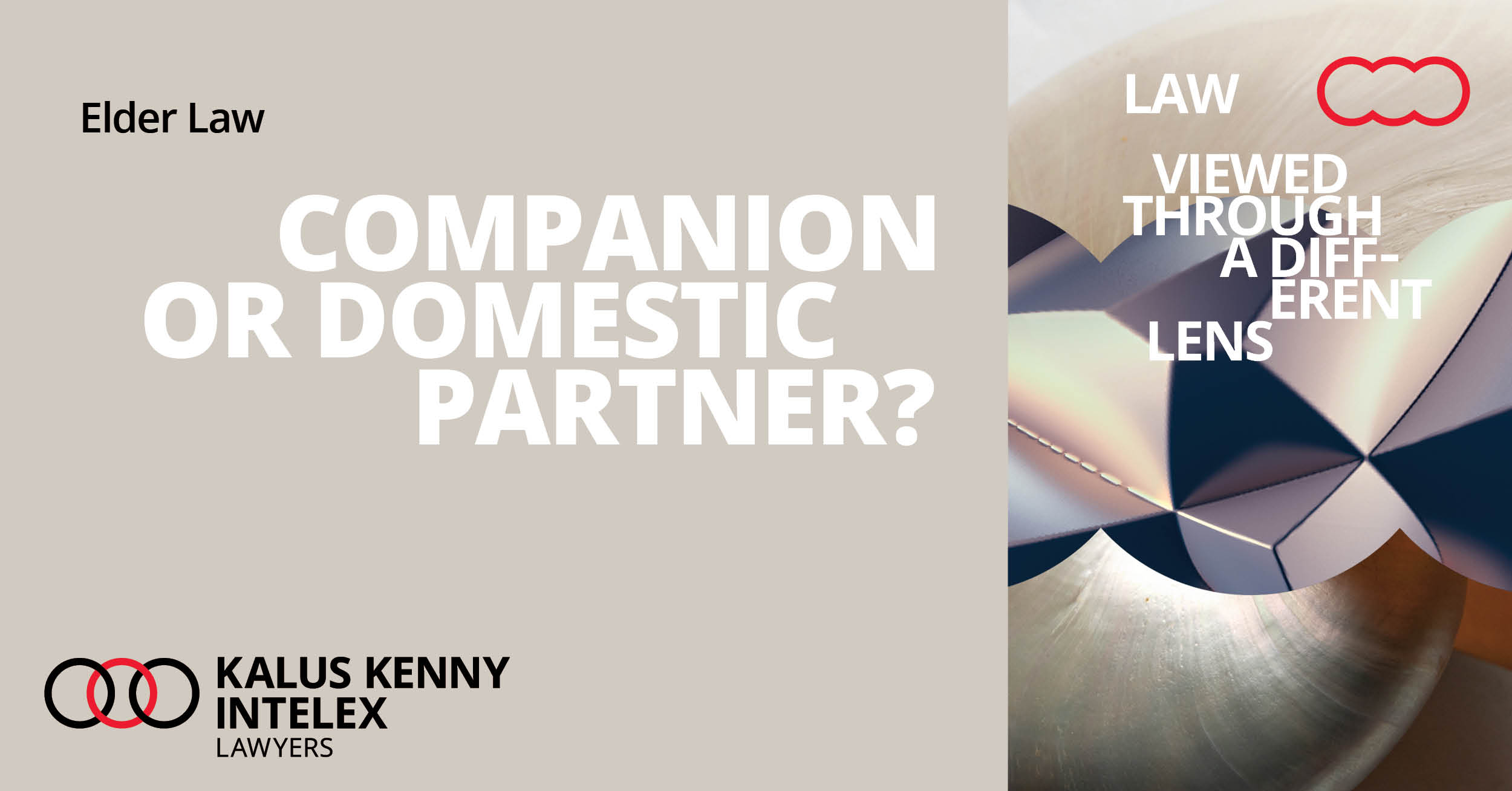Elderly widowed parents are increasingly forming a bond with a companion to have company in later years of life. While companionship is important, especially for seniors, there can be repercussions for your estate planning.
We have seen an increase in claims against a deceased estate for further provision by a companion who alleges, after the deceased’s death, that they were the domestic partner of the deceased.
In Victoria, there are certain “eligible persons” who can make a claim against a deceased estate. This includes an “unregistered domestic partner” of the deceased.
Often as people age, their spouse may pass on earlier than expected. If there are any children of the marriage, they may have moved out and established their own family units. The widow/er may form a new relationship or companionship without the intention of entering into a “domestic partnership” that may elevate that person to some legal privileges akin to a spouse.
An unregistered domestic partnership is recognised by considering a number of factors:
• Was the person living with the deceased continuously for a period of at least 2 years immediately before the person’s death?
• Was the person a parent of a child of the deceased, that child being under 18 years of age at the time of the deceased’s death?
• What was the degree of mutual commitment to a shared life?
• What was the nature and extent of common residence?
• Was there a sexual relationship?
• Was there a financial dependence or interdependence or any arrangements for financial support between the parties?
• Did the parties own, use or acquire property together?
The status of a relationship can be a difficult matter to prove or dispute after a person passes away. To protect yourself and your families against these types of claims against your estate, it is important to reach out to us:
• if you are currently in a domestic partnership and have not considered this person within your estate planning;
• if you have entered into a new relationship, whether that be a companion or partner, which may touch on the factors above.
For estate planning and elder law advice, contact Kimi Shah or Lisa George from our Estate Planning and Wealth Protection team.



